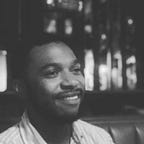Faith
The power of faith is often understated today.
Of course, there is a biblical definition of faith:
“Now faith is the substance of things hoped for, the evidence of things not seen.” — Hebrews 11:1
More recently, Mahalia Jackson described faith as “the vitamins of the soul.”
At the end of the day, faith powers our cohesion as a society and as a species. It gives things meaning. It can be faith in God or faith in the laws of Physics. Ultimately, faith is what powers the engines of truth and accountability within our communities.
The abundance of bad faith today has created a cynical sense of powerlessness and meaninglessness towards our collective ability to connect with other groups or maintain control over our own lives. In philosophy, bad faith is examined through the lens of existentialism. Philosophers like Jean-Paul Sartre see bad faith as a phenomenon that occurs when actors behave inauthentically because of “external pressures” that cause a person to act and speak in ways contrary to their authentic choice — one being a response that is actually reflective of the current situation. Sartre understands this through existentialism because bad faith derives itself from a sense that circumstances trump free agency. Therefore one has finite control over the decisions one is forced to make.
We see this applied to society today when bad faith arguments thrive off of each other to create a shared reality and sense of powerlessness and collective oppression. A little more plainly — each argument or stance facilitates a “bunker mentality” amongst those living under a cloud of bad faith, and a cynical cycle is perpetuated.
Existentialism connects deeply with our current state of affairs since, in many parts of the world, there is a shrinking segment of the populace brutally forcing another expanding segment to suffer through their narrow personal or cultural existential crisis — with little self-awareness for the wide-reaching negativity and dysfunction that follows. After all, existentialism starts by evaluating the worldview, lived experiences, and even cultural blind spots of the person going through the crisis.
When people undergo existential crises, it is also reflective of their own hopes and dreams. Mainly, it reflects their understanding of their place in the world.
For example, there is a large (and sometimes intentional) blind spot for many national politicians on the American Right regarding how manufactured talking points constantly alienate many in traumatized communities. Despite being told this repeatedly, many of these bad-faith actors have been fueling their existential crisis about a racially, culturally, and economically changing America by creating fabricated monsters so powerful that they have to sacrifice their own morality to fend off this threat.
In the end, this cycle of myopic condescension really reinforces some people’s bad faith rationalizations. The belief that one isn’t actually acting out of social animosity because their detractors are just choosing to be ignorant of the bad faith within their own argument is one example.
Consequentially, if one brings this warped mentality to high-stakes issues like public health, racially motivated violence, and voting rights, the discussion and debate become morally repugnant. It is reflective of leaders (and followers) who feel there are no consequences for those they don’t like and that “order” is now needed to secure an abstract or concrete system of supremacy.
Today's pronounced bad faith is ironically an outcome of a general lack of faith within our citizenry for systems of power and accountability. Societies normally are filled with bad-faith opinions, but if they are operating at a high salience, it can produce a dangerous decadence and apathy. And this is not to push any specific religious doctrine.
Right now, “faith” is being defined as the kind of assurance one has in their ability to travel to the store safely because you can assume that traffic systems won’t break down and a hate crime won’t occur.
So yes, this is how fascism and autocracy come to fruition. Cynical people look for someone to validate their bad faith and fight the evildoers and the undeserved. Disillusioned people want a strong leader to establish “truth” even if it’s brutal and corrupt. The prevalence of bad faith spreads like a virus and mutates into a worse version of its prior self.
Solutions are easier said than done. But honestly, we must build back faith in the dynamism of the American people and the American nation. This requires discipline and openness, while understanding some discussions and policies may be esoteric and challenging. And there may be more trade-offs than one anticipates. Democracy is not easy to maintain, but its survival is our national gift to successor generations.
Most of all, let’s have faith in each other.
Those of us fortunate enough to be raised on tales of fighting fascism in Europe and the Pacific also tend to meld minds when observing the stark changes that postwar American society underwent. It’s enlightening to see how these societal shifts were facilitated by a nation that had built intense cohesion and consensus through surviving previous failures in austere government and being forced to contribute to the war effort. The inevitable fallout was many Americans unrealistically harbored what historian James T. Patterson called “grand expectations” for the ability of America to fight poverty, social animus, and dictatorial governments. And predictably, those high expectations were torn asunder by historical forces, decisions, and revelations that uncovered misguided war plans and other constant examples of our government operating with anti-democratic hidden agendas.
We study the past to gain more insight into topics like Vietnam and Watergate. We study philosophy to understand “existentialism” and “bad faith” concerning ourselves and our environment. What’s happening in America is very real and very scary, but it is also a call for us to rediscover the power of faith and wisdom.
Having faith in each other can create more angels than demons. It can also prevent future existential crises and more dangerous attempts by bad-faith actors to silence American voices.
